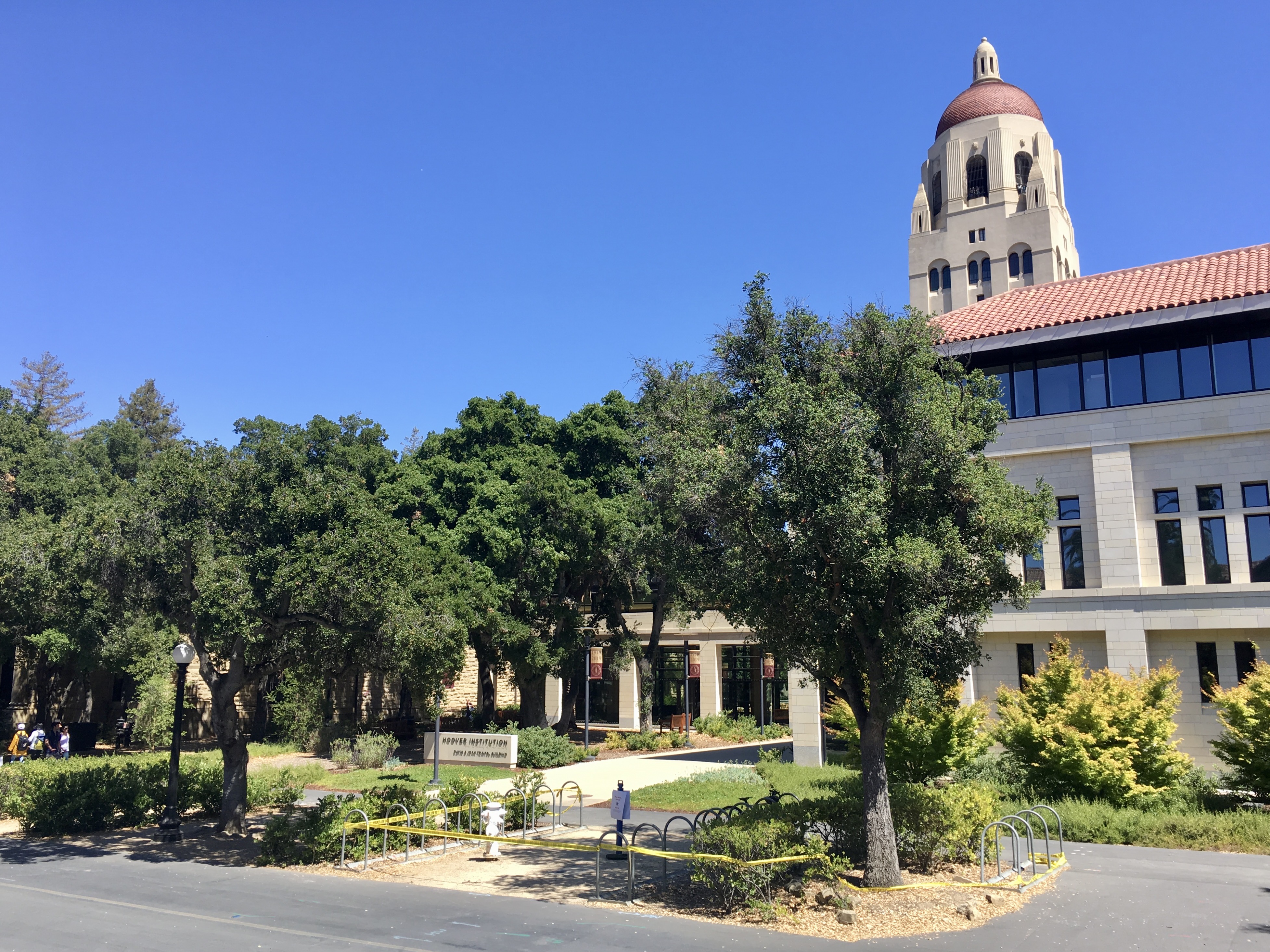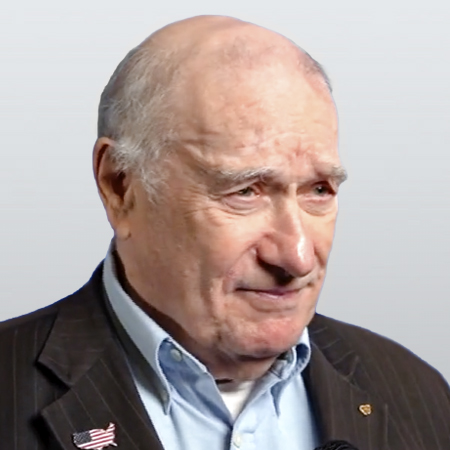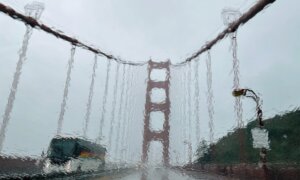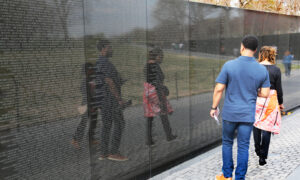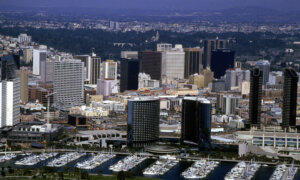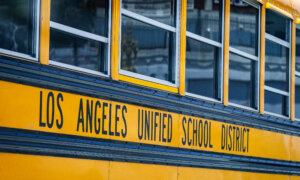Commentary
Stanford University in Palo Alto, California, recently held an online seminar on the current situation in China. Matt Pottinger, a Mandarin-fluent former adviser to President Donald Trump, led a 1 1/2-hour-long discussion of a book titled “The Boiling Moat”—a collection of essays on what to do about communist China’s blockades and possible invasion of Taiwan.
Mr. Pottinger asked the critical question of what urgent steps would be credible. What military demonstrations of power by Taiwan and its allies—Japan, the United States, Australia, or NATO—would deter the Chinese Communist Party’s (CCP’s) People’s Liberation Army (PLA) from military actions to intimidate Taiwan or defeat its defenses?
The problem has historical precedents. British Prime Minister Winston Churchill, standing alone for a decade, warned of the rise of Hitler’s Germany. Today most Americans have a war weariness, a creeping isolationism, not unlike the 1930s.
Co-authors of “The Boiling Moat” appeared on two panels.
Harvard University professor Andrew Erickson noted that the CCP’s rise was smarter than the Nazis’ and unnoticed. Similarly, he observed U.S. vulnerability, not only to the loss of Taiwan’s superior computer chips but to China’s mass production of the midrange chips in many consumer products.
George Mason University professor Michael Hunzeker discussed Taiwan’s cultural transformation, which has not extended to military preparedness, particularly training.
Georgetown University professor Ivan Kanapathy observed that Taiwan needs improvements in messaging—public opinion, psychological warfare—to the people of Taiwan.
Col. Grant Newsham, a former Marine and author of “When China Attacks,” said that although the Japanese people are not ready to fight, the Japanese military has worked well on joint operations with the United States—using common radio frequencies, logistics, and weapons.
Robert Haddick, author of “Fire on the Water,” said he is optimistic that the defenders of Taiwan could prevail using submarines, long-range aircraft, air-to-surface missiles, and satellite surveillance to knock out Chinese maritime forces. That said, political and military leaders have done a poor job of informing China of allied capabilities—matters not to be kept secret so deterrence can work, he said.
Isaac “Ike” Harris, a strategist at Exiger LLC, argued that the United States has strong defenses from even mass drone attacks as proven in the current war in Gaza. The priority has to be mass production of cheaper munitions such as 500-pound laser guide bombs, he said.
U.S. leaders and Stanford are coming of age on the China threat after decades of neglect.
The Tiananmen Massacre
On June 4, 1989, PLA tanks and troops murdered as many as 10,000 to 30,000 unarmed pro-democracy Chinese people who were marching under a papier-mâché replica of America’s Statue of Liberty. The CCP-ruled PLA was not a force of liberation but of massacre.
The plaza and streets of Tiananmen, flowing with blood at night, were washed by morning and photoshopped out of communist Chinese history with the help of Kissinger Associates and President George H.W. Bush.
In stark contrast to President Ronald Reagan, President Bush passionately prevented the blood of Tiananmen from soiling economic relations with China, particularly then-Chinese leader Deng Xiaoping and his future successor, Jiang Zemin, who said in September 1989, “We do not believe that there was any tragedy in Tiananmen Square.”
Henry Kissinger urged President Bush to take “a lighter response to the ... massacre.” Mr. Kissinger counseled Mr. Bush to not only mute his response but also avoid imposing sanctions on and isolating China.
Love Letters to Chairman Deng
Already seduced during his time as a liaison representing the United States in Beijing in 1974–75, President Bush penned love letters to Chinese communists even after the bloody massacre of thousands of Lady Liberty-inspired peaceful protesters.
President Bush lovingly wrote to the architect of the Tiananmen Square massacre, Deng: “I write in the spirit of genuine friendship. ... Good relations between the United States and China are in the fundamental interests of both countries. ... I have tried very hard not to inject myself into China’s internal affairs. ... The clamor for stronger action remains intense. ... I have resisted. ... I explained to the American people that I did not want to unfairly burden the Chinese people with economic sanctions.”
Mr. Kissinger rationalized the massacre—no regime could tolerate occupation near the seat of government by thousands of people who repudiated its legitimacy.
President Bush sent Brent Scowcroft and Larry Eagleburger to Beijing to deliver a message to not worry about Tiananmen and that the United States was still interested in good relations. Mr. Eagleburger was president of Kissinger Associates, and Mr. Scowcroft was its vice chairman.
On July 21, 1989, the president sent a second letter to “Dear Chairman Deng, Dear Friend.” The appeasing president informed Deng that “the U.S. and the Japanese removed some rather inflammatory language from the [U.N.] Communiqué.”
Groveling, President Bush wrote that he would not interfere in China’s internal affairs, but in the candor of a friend suggested that Deng’s government show “forgiveness” to the students and other demonstrators.
“Please do not be angry with me, if I have crossed the invisible threshold lying between constructive suggestion and ‘internal interference,’” he wrote.
Deng held fast on China’s internal affairs, silencing forever the Tiananmen protestors of June 1989.
President Clinton
President Bill Clinton gave Most Favored Nation status to China in 1994, opening the U.S. market to China on the same favorable conditions as friendly nations.
In Congress in 1998, the Chris Cox and Fred Thompson hearings and reports in Congress exposed Red China’s missile, satellite, and nuclear technology, as well as nuclear technologies gifted to or stolen for China. Chinese and aerospace campaign contributions to President Clinton had encouraged sloppy security.
President Clinton, as a major recipient of Chinese campaign cash, removed U.S. Congress-imposed trade sanctions on the CCP and wiped the Tiananmen massacre from history.
In 1999, professors Alastair Iain Johnston, W.K.H. Panofsky, Marco Di Capua, and Lewis R. Franklin, of Stanford University’s Center for International Security and Cooperation (CISAC), rose up in outrage over the Cox report. The professors denied the existence of Chinese espionage and corporate collaboration in transferring nuclear, missile, and satellite technology to China. They insisted that such accusations were spectacular, sloppy, and unproven.
Indeed, CISAC would eventually be proven to have openly collaborated with Chinese military and government-linked entities, including those flagged by the FBI for espionage and blacklisted by the U.S. government.
The lecturing professors authoritatively declared that it was a caricature to claim that the CCP was in “control” of China.
President George W. Bush and Condoleezza Rice
Also at Stanford, John Lewis mentored Condoleezza Rice, a Soviet expert, on China and encouraged her quest for reformers inside China. Mr. Lewis made many trips to China on Ms. Rice’s behalf.
In April 2001, when a Chinese pilot recklessly slammed into a U.S. surveillance plane off Hainan Island, Ms. Rice urged President George W. Bush to open China’s economy.
By 2002, China, still communist, had thousands of Trojan horses—sailors, soldiers, scientists, students, spies, and others—who were given open but quiet access to U.S. ports, military bases, research labs, universities, and factories.
In December 2002, Ms. Rice met with Zheng Bijian, the Chinese Ministry of State Security’s master agent of influence of the China Reform Forum. Mr. Zheng’s pitch of China’s peaceful rise without conflict impressed Ms. Rice, Mr. Kissinger, Mr. Scowcroft, and Zbig Brzezinski.
In 2008, 19 years after his father forgave China for the Tiananmen massacre, the younger President Bush dismissed calls for a boycott of the Beijing Olympics. Accompanied by Ms. Rice, who was secretary of state at the time, he sat enjoying a majestic, collectivist show of absolute obedience to communist tyranny. From an air-conditioned sky box, he watched tens of thousands of perfectly synchronized and obedient Chinese during the spectacular Borg-like opening ceremony of the 2008 Beijing Summer Olympics.
In 2009, Ms. Rice, Stephen Hadley, Robert Gates, and Anja Manuel formed Rice, Hadley, Gates & Manuel LLC, an international strategic consulting firm assisting companies expanding into China.
At the end of September 2021, 177 Stanford professors from 40 departments signed a letter urging the United States to end the Trump “China Initiative.” The letter was sent to President Joe Biden’s attorney general, Merrick Garland.
The Stanford scientists might have been defending their own from investigations of how China got such perfect replicas of U.S. science and technologies—satellites, aircraft, ships, missiles, nuclear warheads, and so on.
Parroting CCP propaganda, the Stanford 177 accused the Trump China Initiative, which was pursuing Chinese spies, of being a program for racial profiling that was terrorizing university professors and scientists.
Steven Chu of Stanford, a former U.S. energy secretary and a Nobel Prize winner, said President Donald Trump’s China Initiative did not protect U.S. technology; it undermined America’s lead in science.
Now, in 2024, Stanford has come a long way on China, and that is an incredibly good thing for world peace—through strength.
